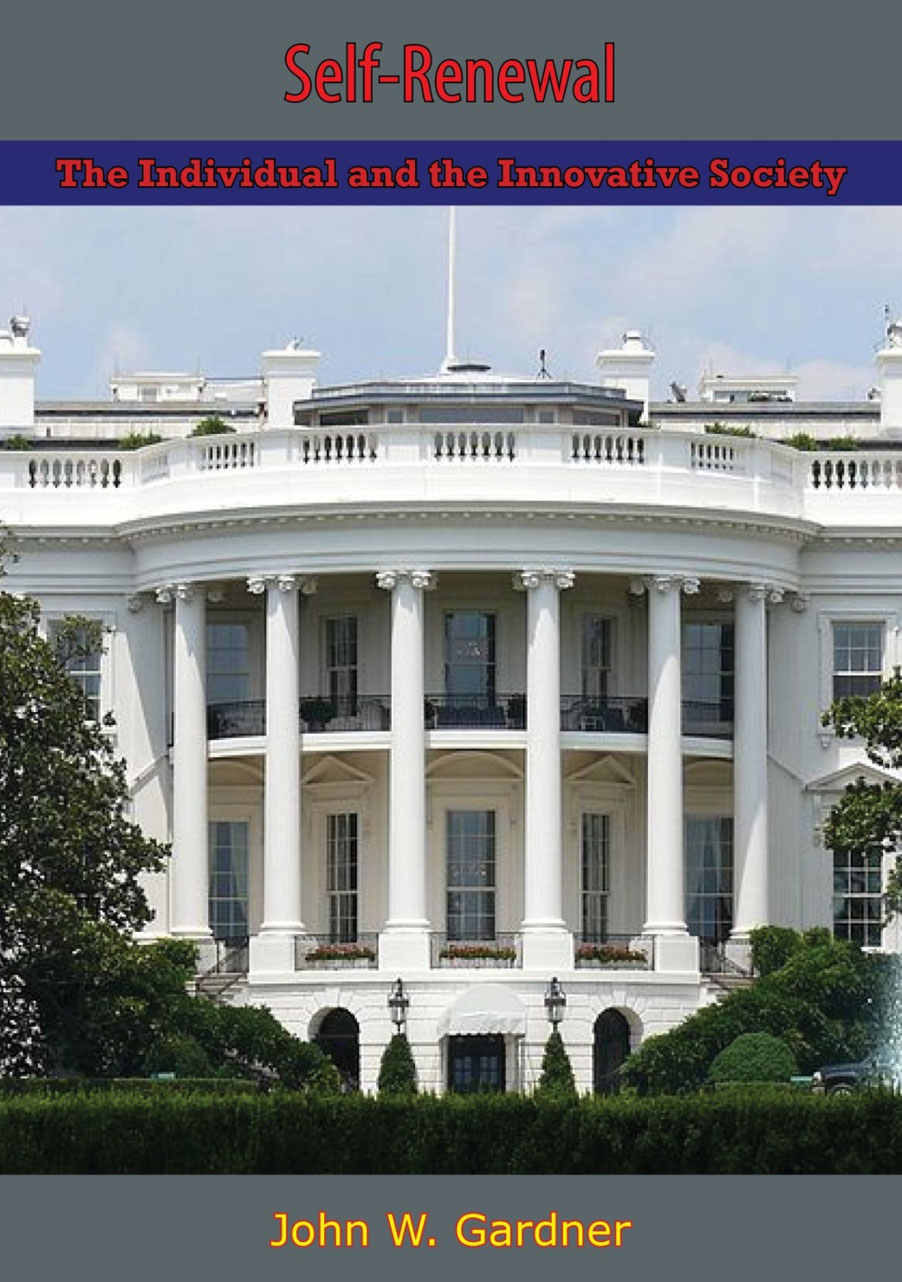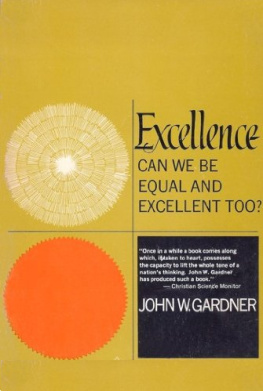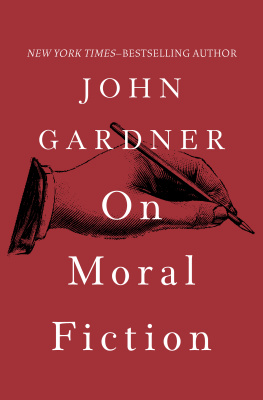

This edition is published by Muriwai Books www.pp-publishing.com
To join our mailing list for new titles or for issues with our books muriwaibooks@gmail.com
Or on Facebook
Text originally published in 1963 under the same title.
Muriwai Books 2017, all rights reserved. No part of this publication may be reproduced, stored in a retrieval system or transmitted by any means, electrical, mechanical or otherwise without the written permission of the copyright holder.
Publishers Note
Although in most cases we have retained the Authors original spelling and grammar to authentically reproduce the work of the Author and the original intent of such material, some additional notes and clarifications have been added for the modern readers benefit.
We have also made every effort to include all maps and illustrations of the original edition the limitations of formatting do not allow of including larger maps, we will upload as many of these maps as possible.
SELF-RENEWAL
THE INDIVIDUAL & THE INNOVATIVE SOCIETY
BY
JOHN W. GARDNER
TABLE OF CONTENTS
Contents
DEDICATION
FOR AIDA
ACKNOWLEDGMENTS
I want to thank all of those who read and commented on the manuscript at various stages: Nancy Ferguson, Barbara Finberg, Margaret Mahoney, Lloyd Morrisett, Alan Pifer, Stephen Stackpole, and Kate Woodbridge. I owe a special debt to Caryl P. Haskins for stimulating criticism and suggestions; to Helen Rowan for wise editorial guidance; and, as always, to Isabelle C. Neilson for help in every phase of the work. I am grateful to Ann Graham for help in preparing the manuscript, and to Lonnie A. Sharpe for his usual high competence in assisting at all stages of the work. Finally, my gratitude goes to my wife, to whom this book is dedicated, and to my daughters, Stephanie (Mrs. Phillip) Trimble and Francesca Gardner, for advice and encouragement.
INTRODUCTION
As I was browsing in a university bookstore recently, I heard an apple-cheeked girl say to her companion, The truth is that our society and everything in it is in a state of decay. I studied her carefully, and I must report that she did not seem even slightly decayed. But what of the society as a whole?
Decay is hardly the word for what is happening to us. We are witnessing changes so profound and far-reaching that the mind can hardly grasp all the implications. With respect to most of these eventsspace exploration is the spectacular examplewe are not just passive observers but are helping to produce the changes. That is a story of dynamism, not deterioration.
Yet no one can fail to see in some segments of our society the dry rot produced by apathy, by rigidity and by moral emptiness. Only the blind and complacent could fail to recognize the great tasks of renewal facing usin government, in education, in race relations, in urban redevelopment, in international affairs, and most of all in our own minds and hearts.
In my earlier book, Excellence, I stressed the importance of high standards.{1} But high standards are not enough. There are kinds of excellencevery important kindsthat are not necessarily associated with the capacity for renewal. A society that has reached heights of excellence may already be caught in the rigidities that will bring it down. An institution may hold itself to the highest standards and yet already be entombed in the complacency that will eventually spell its decline.
We are beginning to understand the processes of growth and decline in societies. We understand better than ever before how and why an aging society loses its adaptiveness and stifles creativity in its members. And we are beginning to comprehend the conditions under which a society may renew itself.
But social renewal depends ultimately on individuals; and the individual today has his problems. In a recent television drama a mad scientist, fingering the switches on his electronic computer, declared, The individual is obsolete. We can survive only if society runs like a finely tuned machine. That requires suppression of individuality.
Many people today fear that such echoes of Orwell and Huxley are an accurate omen of things to come. They doubt that individuality in the old sense can survive the complex and impersonal demands of modern mass society. The danger is real, and we must combat it with all the resources at our command. Fortunately, those resources are substantial. We now know a great deal about the hazards to the individual in modern society, and we know how to prevent some of them. We need not be enslaved by the organizational arrangements we have designed to serve us.
If a society hopes to achieve renewal, it will have to be a hospitable environment for creative men and women. It will also have to produce men and women with the capacity for self-renewal. Thanks to recent research, we now know a good deal about the creative person and about the environment which fosters creativity. As for self-renewal, we know that men and women need not fall into a stupor of mind and spirit by the time they are middle-aged. They need not relinquish as early as they do the resilience of youth and the capacity to learn and grow. Self-renewal is possible.
But renewalof societies or of individualsdepends in some measure on motivation, commitment, conviction, the values men live by, the things that give meaning to their lives. E. A. Sothern, the great nineteenth-century actor, was observing a small boy who wanted to go outdoors to join his older playmates but feared they would not accept him. When the children started to return to the house, Sothern said playfully, Lets hide behind the curtain and they wont know where we are! The boy looked at him disconsolately and said, Suppose they dont care?
It is a question that must be asked of every social enterprise. The renewal of societies and organizations can go forward only if someone cares. Apathy and lowered motivation are the most widely noted characteristics of a civilization on the downward path. Apathetic men accomplish nothing. Men who believe in nothing change nothing for the better. They renew nothing and heal no one, least of all themselves. Anyone who understands our situation at all knows that we are in little danger of failing through lack of material strength. If we falter, it will be a failure of heart and spirit.
Books that discuss creativity do not ordinarily discuss moral decay and renewal. Books on social organization do not usually examine the individuals capacity for lifelong learning. I have not brought these topics together with the essayists inclination to ramble. I have brought them together because they are all parts of the same problem. Unless we attend to the requirements of renewal, aging institutions and organizations will eventually bring our civilization to moldering ruin. Unless we cope with the ways in which modern society oppresses the individual, we shall lose the creative spark that renews both societies and men. Unless we foster versatile, innovative and self-renewing men and women, all the ingenious social arrangements in the world will not help us.

![John W. Gardner Self-Renewal: The Individual and the Innovative Society [First Edition]](/uploads/posts/book/163439/thumbs/john-w-gardner-self-renewal-the-individual-and.jpg)












